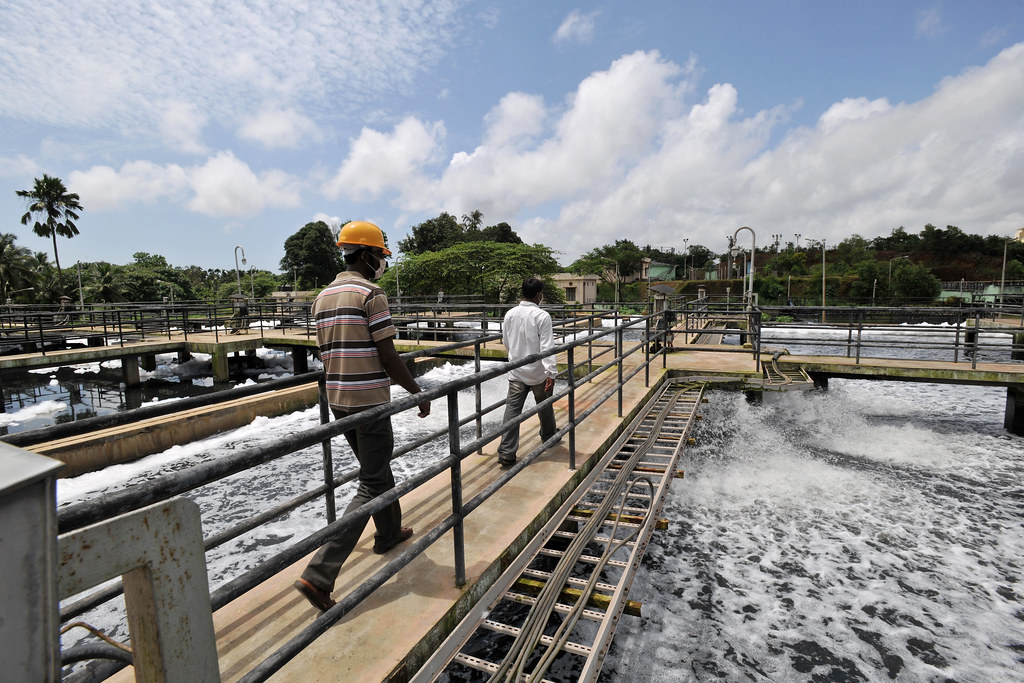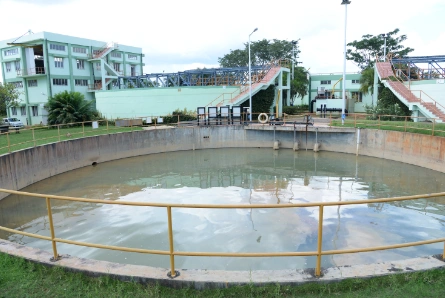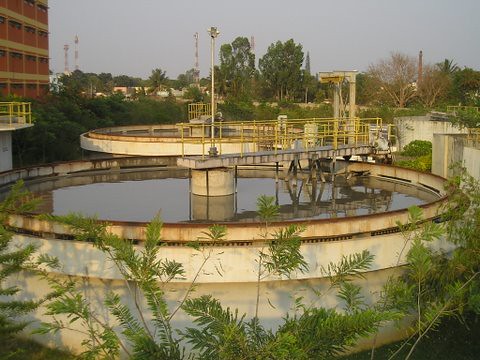Amidst the vibrant allure of Bengaluru’s verdant landscapes and abundant water reservoirs lies a city grappling with a dire water crisis. Rapid urbanisation, a burgeoning population, and the looming spectre of climate change have stretched the city’s water supply to its limits, necessitating urgent and sustainable management measures. While technological interventions are undeniably crucial, the pivot towards behavioural change among residents emerges as an equally imperative aspect of the solution.
As a fourth-generation resident of Bengaluru and a fervent conservationist, my commitment to safeguarding our city’s water resources impels me to explore the significance of behavioural change in water management. Through this article for World Water Day 2024, I aim to illuminate the crucial role that shifting societal behaviours can play in addressing Bengaluru’s water woes. By delving into the underlying challenges and potential strategies, I hope to provide readers and decision-makers with insights that can guide transformative action.
Bengaluru, with its population of 13.6 million spread across 741 square kilometres, stands as the third most populous city in India and the 27th largest globally, boasting a staggering population density of 19,193 individuals per square kilometre. Nestled in the Deccan Plateau within Karnataka’s southeastern expanse, Bengaluru rises to an elevation exceeding 900 metres above sea level. Recent estimates peg the city’s daily water requirement at approximately 1.4 billion to 1.5 billion litres per day (BLD), with infrastructure including approximately 33 Sewage Treatment Plants (STPs) processing a staggering 1440 million litres per day (MLD) of sewage, as reported by the Bengaluru Water Supply and Sewerage Board (BWSSB).
The root cause of the problem: Why is water a matter of Behaviour?
Despite its bustling economic activity and vibrant allure, Bengaluru faces the ominous prospect of water scarcity, teetering on the precipice of exhausting its drinking water reserves. Nonetheless, the city remains a beacon of opportunity, attracting youth, students, and professionals alike with its burgeoning IT, biotechnology, and startup sectors. In the hustle and bustle of Bengaluru’s fast-paced life, the imperative for sustainable water management resonates louder than ever. As we navigate the complexities of urban living, fostering a collective ethos of water conservation becomes paramount. Through this article, I aspire to ignite a dialogue that transcends mere discourse, paving the way for tangible action and transformative change. Together, let us embark on a journey towards a water-secure future for Bengaluru, preserving its essence for generations to come.
The root cause of the water crisis in Bengaluru lies in the mindset towards water consumption. Water conservation transcends mere actions or practices; it embodies a fundamental shift in thinking and recognizing the intrinsic value of water in sustaining life and ecosystems. Embracing water conservation as a behavioural concern entails acknowledging its critical role in sustaining life, understanding its finite nature, and realising the collective impact of individual actions on water availability. Unfortunately, many Bengalureans have historically perceived water as abundant due to subsidised pricing and inconsistent supply, exacerbating the crisis by neglecting efficient water practices and failing to recognize the looming scarcity.
Aligning water conservation with principles of sustainable living is paramount for addressing the water crisis in Bengaluru. Prioritising long-term planetary health fosters a deeper appreciation for the interconnectedness of all living beings and creates social norms encouraging responsible water usage. However, several challenges hinder behavioural change efforts, including entrenched habits, socioeconomic disparities, inadequate infrastructure, and conflicting interests among stakeholders. Overcoming these challenges requires sustained educational campaigns, community engagement, and policy interventions to foster a collective effort towards sustainable water management. By empowering individuals to advocate for policy changes and educating others, Bengaluru can transcend water-saving practices and safeguard this vital resource for present and future generations.
Is it Imperative for Behavioral Change in Water Conservation for Bengaluru?
While engineering marvels, infrastructural enhancements, and technological innovations undoubtedly play pivotal roles in addressing water scarcity, their efficacy remains limited without a fundamental shift in people’s behaviours towards water conservation, particularly evident in Bangalore’s chronic water shortages despite significant investments in water management infrastructure. Engineering solutions, such as reservoirs and water treatment plants, provide temporary relief but must be accompanied by a multidisciplinary approach involving experts from diverse fields to define holistic strategies. Similarly, technological advancements offer tools for efficient water use, yet fail to address the root issue: human behaviour.
In Bengaluru, rapid urbanization and population growth strain already limited water sources, exacerbating unsustainable practices like excessive household consumption and industrial pollution. Changing these entrenched behaviours requires a paradigm shift towards a water-conscious mindset ingrained in society’s fabric, necessitating awareness campaigns, community engagement, and policy interventions. Educating individuals about water conservation’s importance and empowering them to implement conservation measures are essential, along with incentivizing responsible water use through economic measures. However, overcoming entrenched habits, cultural norms, and socioeconomic factors presents significant challenges, requiring concerted efforts from government agencies, nonprofits, educational institutions, and the private sector.
Over the past two decades, Bengaluru has experienced a significant influx of people from various parts of the country. Many of these migrants come from regions with access to perennial water sources such as the Ganga, Yamuna, Brahmaputra, Sindhu, Godavari, and Krishna rivers. However, Bengaluru itself relies heavily on the Cauvery River, which is diverted from a distance of over 100 kilometres to meet the city’s water needs. As a result, there is a noticeable disparity in understanding water scarcity among these migrants, who may not grasp the challenges of water availability in Bengaluru and tend to waste water due to their accustomed access to abundant water sources in their places of origin.
While engineering and technological solutions are crucial for water management, transforming people’s attitudes and behaviours towards water conservation is equally vital. Bangalore’s path to a sustainable water future hinges not only on concrete infrastructure but also on fostering a culture of conservation among its citizens. Only through collective consciousness and concerted action can the city hope to mitigate the water crisis and ensure a resilient future for generations to come.
What are the strategies for Behavioural Transformations?
- Dominant and selfish human species: The dominant human species often operates under the belief that success is achieved by outcompeting others. However, this mindset fails to recognize the fundamental principles of nature, which emphasise cooperation and interdependence. If we continue to prioritise competition over cooperation, we risk damaging the delicate balance of the natural world. We must shift towards living in harmony with nature and all other species. By embracing cooperation and mutual respect, we can foster a sustainable future for ourselves and the planet.
- Address Migration Dynamics: The influx of migrants accustomed to abundant water sources contributes to water misuse in Bengaluru. Tailored strategies should address their perception and encourage responsible water use.
- Mandatory RWH Implementation: The government must enforce the RWH mandate rigorously to harness every raindrop efficiently. Over all a gap was noticed from the understanding that people have about RWH to the willingness to implement RWH and the main influencing factor for adoption was lack of awareness or knowledge on understanding of the return on investment factor (ROI) of RWH and the primary factor that influenced implementation was the financial barrier and expectation that the occupants of Bengaluru had from the Government and the reason that sustenance of the practice was hindered is primarily because the respondents never saw water scarcity as a major problem for Bengaluru.
- Consumer Behaviour: Reduce water wastage and consumerism. When greed overtakes life, nature has its answers to the humans with the most profound thinking capacity.
- Inculcate Pro-environment Lifestyle: The fear of scarcity has not set in as yet, but the city dwellers are bracing for the shortage and hence are not keen on preventive measures. The shortage of water is not felt for a long period so they take it for granted that as the weather changes everything will sort out. From some research, it is understood that even if it rains soon in Bengaluru, the chances of groundwater recharge are less due to over-concretisation and blockages of recharge paths in lakes and stormwater drains with plastic, waste cloth, tyres, thermocol, ceramic etc.
- Society has fired an expectation of convenience – to allow people to get what they want to get without having to think about the consequences – The Residence Welfare Associations (RWA’s) have to be educated on the consequences of their actions, the ill impact to the ecosystem, their health and the water lifecycle.
- Reuse of Reclaimed Water: Reuse of reclaimed water is the behavioural transformation required and not refusal to use treated water as considered unhygienic. The economic value of black gold (reclaimed water) is yet to be acknowledged. It is a very beneficial practice for the long term if the passing of good quality tertiary treated water through the wetlands, and recharge pits is considered for groundwater recharging.
- Policy and plans: To promote human behaviour modification for Sustainable Development Goals on water, particularly 6.5.1 on Integrated Water Resource Management (IWRS).
- Government Exemplification: The government should lead by example, implementing RWH in its structures and acting as a role model for the public. They may also discourage the use of plastic bottles in their offices and conferences. Solutions offered generally are academic and bookish but those promoting conservation, which is key, have to walk the talk. For example, make events, functions, and get-togethers water friendly.
- Reevaluate Penalties: The Resident’s willingness to pay penalties for non-implementation of RWH indicates that despite it being made mandatory they don’t care. It is estimated that an average house which has not installed RWH pays an estimate of Rs 300- 800 every month as a penalty but will not choose to install RWH. Adjusting water charges in proportion to income can instil greater value, fostering a sense of responsibility. The implication is that water will never be considered as an asset as the value is always undermined.
- Simulation Exercises: Conduct simulations, like “Zero Water Day,” to instill a sense of urgency among the public, emphasising the importance of water conservation.

Conclusion: In reality, World Water Day 2024, hardly matters in Bengaluru, despite the grave situation we are in with water scarcity. Behavioural change is the most difficult change and hence, unless the Government doesn’t bring about a very clear and practical mandate to bring in a forceful change in the behaviour of the population, with regard to a righteous use of water the situation shall stay grim. The key here is that behavioural change is indispensable for addressing the water crisis in Bengaluru and in fostering sustainable water management practices. Only by promoting awareness, nurturing community engagement, implementing incentive mechanisms, and improving infrastructure. Stakeholders have the power to empower residents in adopting water-saving behaviors, thus contributing to the conservation of this scarce and vital resource. With Bengaluru’s ongoing evolution, concerted efforts toward behavioral change are essential to ensure a water-secure future for generations to come.
Let’s leave a green, clean and safe Earth for all.
Let’s live and let all live.
Madhuri Subbarao, India’s first Conservation Psychologist, Earthitude Research Forum, Friends of Lakes (FOL).
By Earthitude: Your Attitude towards Earth













